Amazin' Daily Briefing: January 21st, 2025
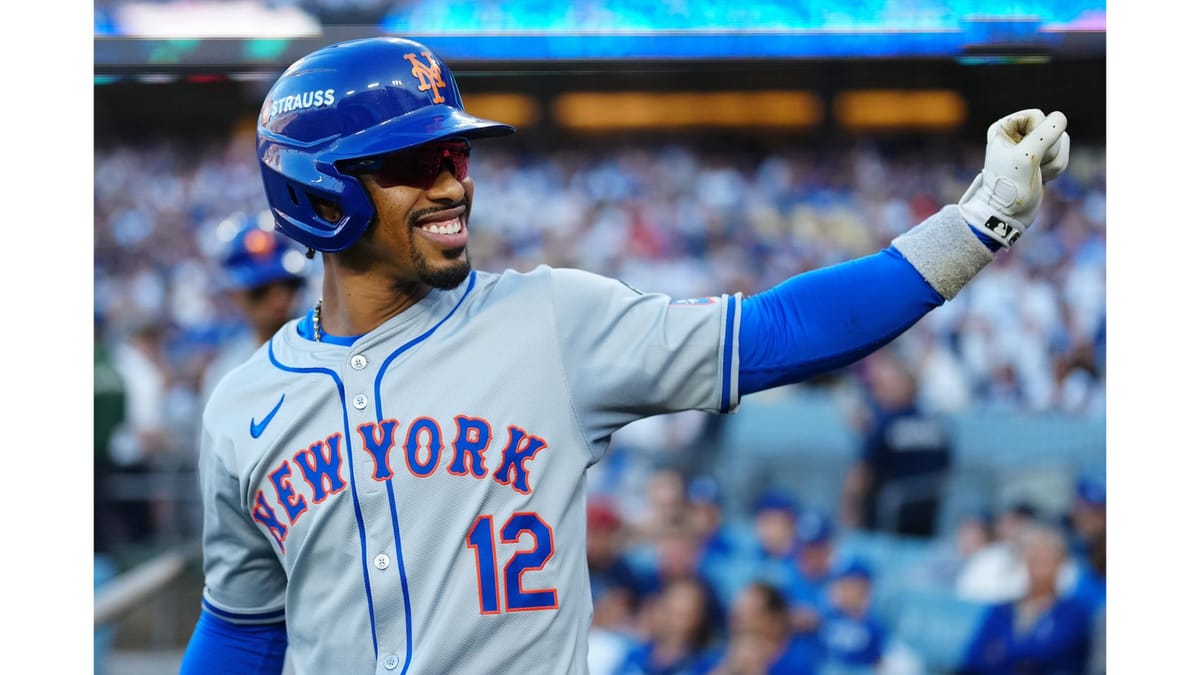
On This Day in Mets History
Transactions:
- 1983: New York Mets released Bruce Bochy on January 21.
- 1983: California Angels signed Ellis Valentine of the New York Mets as a free agent on January 21.
- 1991: New York Mets signed free agent Rick Cerone on January 21.
- 2000: New York Mets traded Luis Lopez to the Milwaukee Brewers for Bill Pulsipher on January 21.
- 2002: New York Mets traded Todd Zeile and Benny Agbayani to the Colorado Rockies for Alex Ochoa, Craig House, and Ross Gload on January 21.
- 2002: New York Mets traded Lenny Harris, Alex Ochoa, and Glendon Rusch to the Milwaukee Brewers for Jeromy Burnitz, Jeff D'Amico, Mark Sweeney, and Lou Collier on January 21.
- 2003: Milwaukee Brewers claimed Brady Clark of the New York Mets on waivers on January 21.
- 2005: Milwaukee Brewers signed Ricky Bottalico of the New York Mets as a free agent on January 21.
- 2006: New York Mets traded Kris Benson to the Baltimore Orioles for John Maine and Jorge Julio on January 21.
- 2011: New York Mets signed free agent Blaine Boyer of the Arizona Diamondbacks on January 21.
- 2011: New York Mets signed free agent Tim Byrdak of the Houston Astros on January 21.
- 2013: New York Mets signed free agent Pedro Feliciano of the New York Yankees on January 21.
- 2015: Boston Red Sox signed Dana Eveland of the New York Mets as a free agent on January 21.
- 2016: Miami Marlins signed Zach Lutz of the New York Mets as a free agent on January 21.
- 2019: Arizona Diamondbacks signed Wilmer Flores of the New York Mets as a free agent on January 21.
Born on this date:
- Bill Graham (1937)
Jake Diekman (1987)
Trivia Question of The Day:
Who won the 1972 N.L Rookie of the Year Award? (Scroll to the bottom to find the answer)
A rookie pitcher for the New York Mets had an outstanding debut season in 1972. Despite the team's struggles, the Rookie of the Year recorded a 15-10 record with a 2.32 ERA, which was among the best in the league.
The rookie's performance was so impressive that they received 19 out of 24 votes for the National League Rookie of the Year award, showcasing their significant impact during their first year in the majors.
"I knew we had a special team, but I never imagined we’d be World Champions so soon." Tom Seaver, 1969
Latest Posts
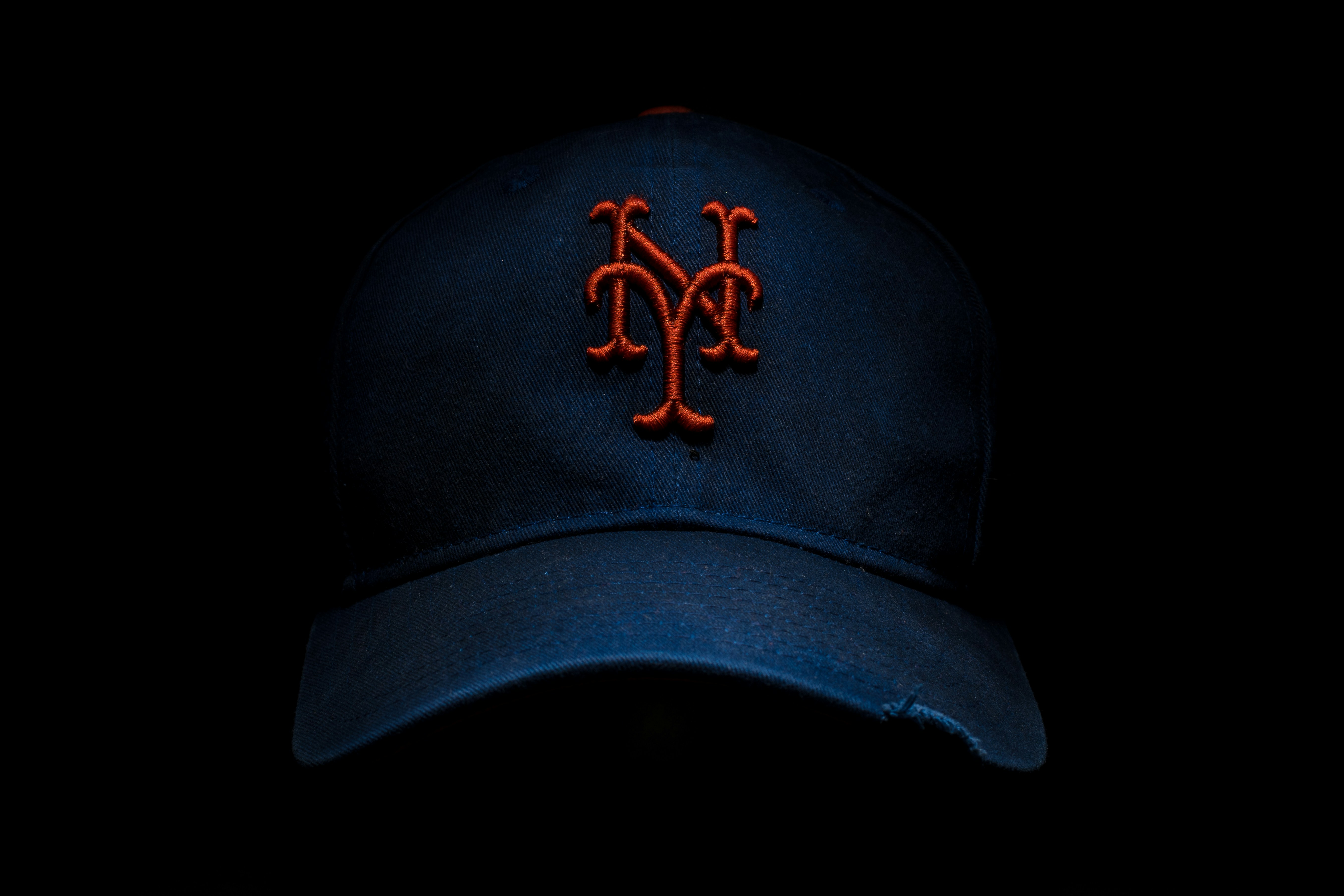
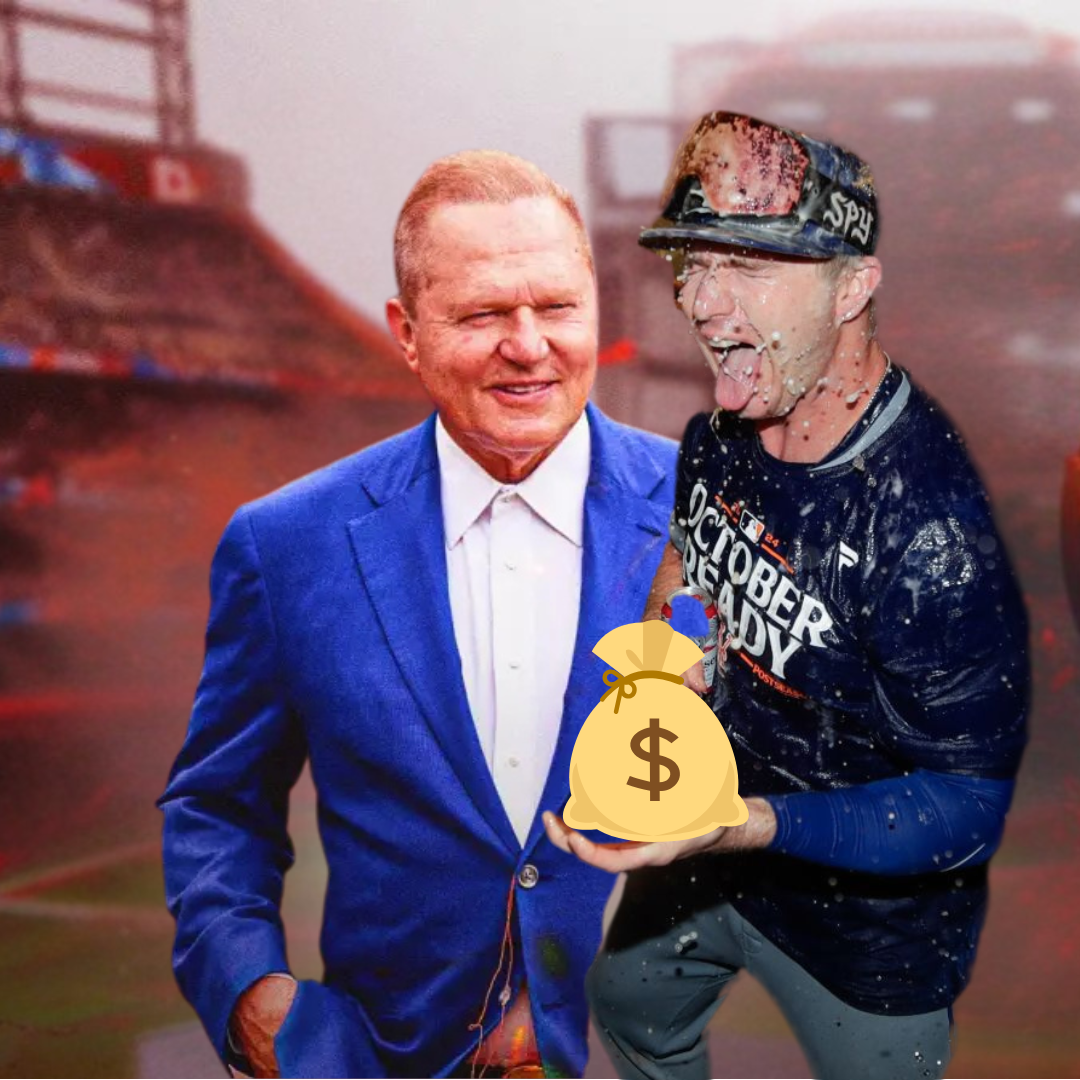
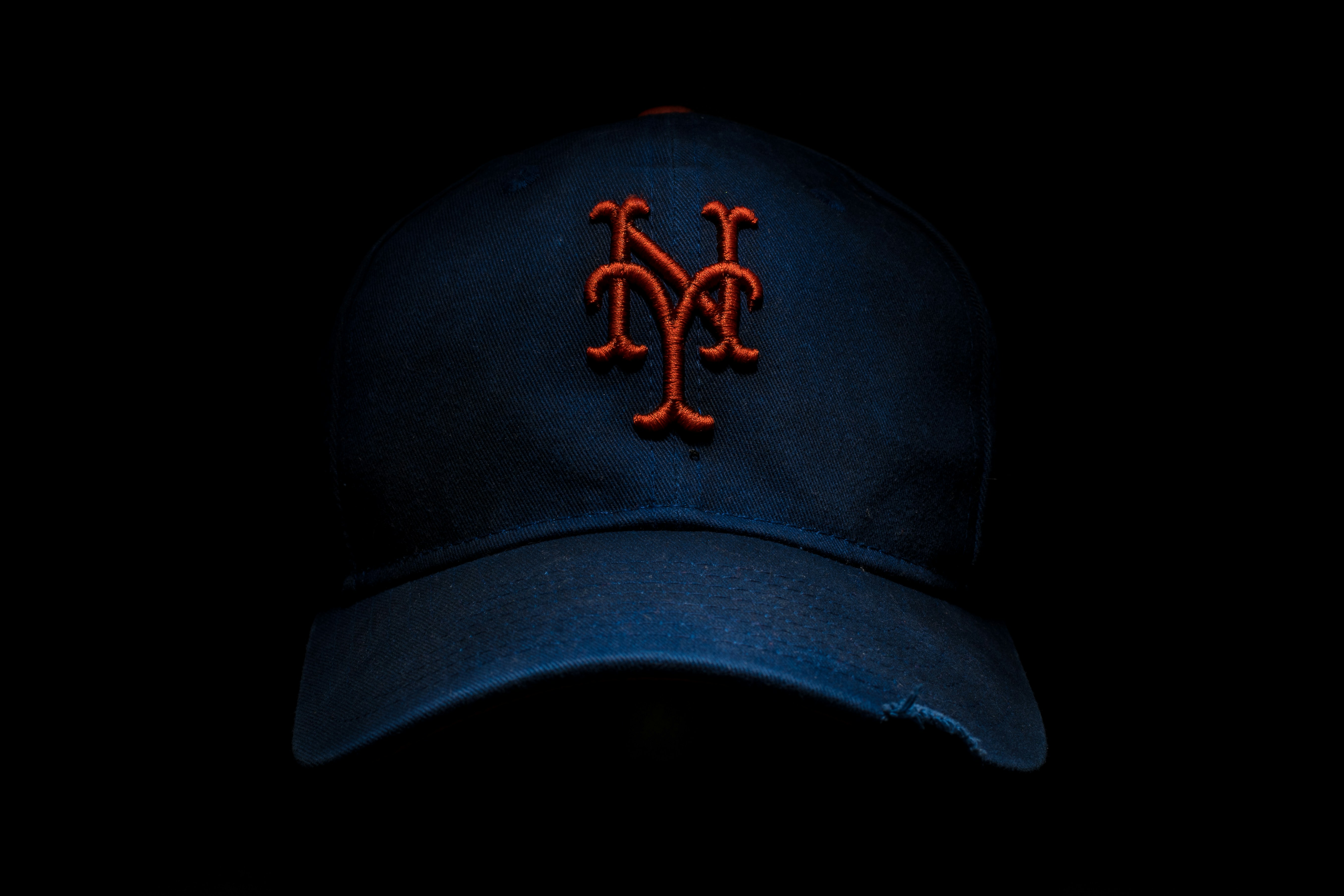
Random Player Spotlight
Hubie Brooks
- Years with Mets: 1980 - 1984, 1991
- 654 games. 44 HR, 269 RBI, 267 avg, 244 Runs, 31 Stolen Bases
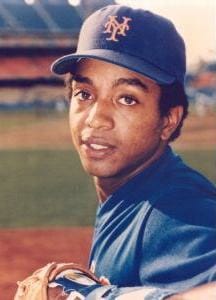
Trivia Answer
Jon Matlack won the N.L. Rookie of the Year in 1972 with a record of 15-10 and a 2.32 ERA, receiving 19 out of 24 votes.
In 1972, several other rookies besides Jon Matlack made notable impacts in Major League Baseball. Carlton Fisk of the Boston Red Sox was the unanimous winner of the American League Rookie of the Year Award, showcasing his skills as a catcher with a strong offensive and defensive presence.
Additionally, Dave Kingman of the San Francisco Giants hit for the cycle in one of his early games, marking him as a significant power hitter from the start of his career. Mike Schmidt, a rookie third baseman for the Philadelphia Phillies, hit his first of many career home runs, beginning a legendary career in baseball.
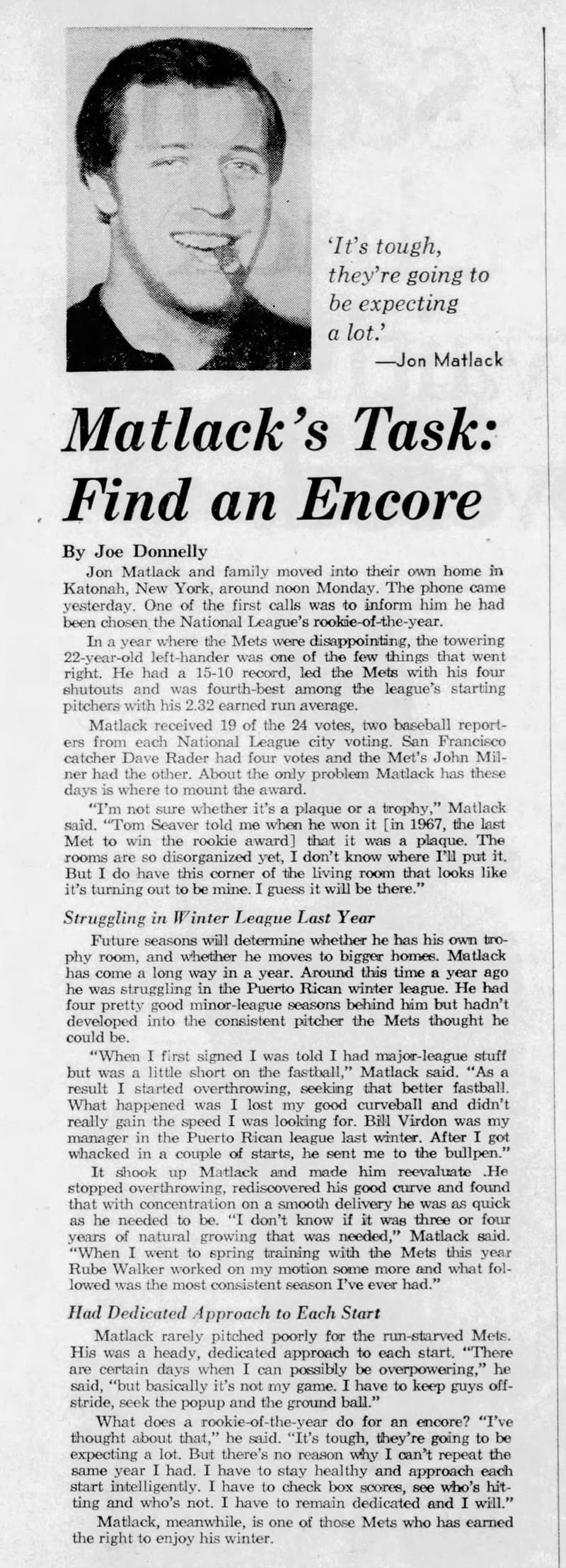
The Writer's Fastball
Should the Mets Give Francisco Alvarez an Extension in 2025?
Why Extending Francisco Alvarez Now is the Smart Move for the Mets
The New York Mets have an opportunity to make a sound, forward-thinking decision by securing Francisco Alvarez with a long-term contract. While the appeal of waiting to see a player develop further can be tempting, recent examples show that delaying such decisions often leads to missed opportunities or paying a premium later. Here’s why locking in Alvarez now is the smart play for the Mets, along with some lessons from teams that hesitated and lost key talent.
1. Securing Stability at a Premium Position
Catchers like Francisco Alvarez, who excel both offensively and defensively, are rare. Extending him now ensures the Mets avoid the risk of losing such a valuable asset in free agency or through trade when his value peaks. This approach not only stabilizes the roster but also sends a clear message about the organization’s commitment to building a competitive team around its young talent.
2. Cost Control and Long-Term Savings
Signing Alvarez early allows the Mets to lock in a deal that could provide financial predictability and potential savings over time. Waiting until arbitration or free agency to negotiate could result in significantly higher costs, especially if Alvarez continues to develop into one of the league's premier catchers.
Teams like the Atlanta Braves have used this strategy successfully, signing players like Ronald Acuña Jr. and Ozzie Albies to long-term contracts early in their careers, saving millions compared to what these stars might have commanded in free agency. The result? A competitive roster with financial flexibility.
3. Learning from Teams That Waited Too Long
The downside of waiting is well-documented in recent MLB history. Here are a few examples of teams that hesitated to secure their stars, ultimately losing them:
- Bryce Harper (Nationals to Phillies)
The Nationals let Harper reach free agency after the 2018 season, and the Philadelphia Phillies swooped in with a 13-year, $330 million deal. While the Nationals did win a World Series in 2019, they missed the opportunity to build around Harper long-term and lost a key piece of their fan engagement. - Mookie Betts (Red Sox to Dodgers)
The Boston Red Sox traded Betts to the Los Angeles Dodgers in 2020 after failing to agree on a long-term extension. Betts subsequently signed a 12-year, $365 million contract with the Dodgers, becoming a cornerstone of their success. The Red Sox, meanwhile, faced backlash for letting a generational talent slip away. - Manny Machado (Orioles to Padres)
The Baltimore Orioles couldn’t work out a long-term deal with Machado before his free agency in 2018. He later signed a 10-year, $300 million contract with the San Diego Padres, leaving the Orioles to rebuild without their star player.
These situations demonstrate the risks of waiting too long to commit to a player. While teams may hesitate to invest early, the cost of losing a star—both in terms of talent and fan support—can be far greater.
4. Aligning with MLB Trends
More teams are opting to secure young talent early to avoid the escalating costs of free agency. Players like Julio Rodríguez (Mariners) have signed early extensions that provide their teams with cost certainty and help maintain a competitive edge. By acting now, the Mets can align with this trend and ensure Alvarez remains part of their long-term plans.
A Prudent Path Forward
Extending Francisco Alvarez now is not about hype—it’s about making a calculated decision that protects the Mets’ future. He still has a lot of development ahead og his, including improving his plate discipline— Alvarez posted a strikeout rate (K%) of 25.1%, indicating that he struck out in approximately one out of every four plate appearances. This rate is notably higher than the league average, suggesting a pressing need for Alvarez to refine his approach at the plate. Enhancing his pitch recognition and selection could lead to more consistent contact and elevate his overall offensive contributions.
Defensively, Alvarez's impact on the Mets' pitching staff was significant. When he was behind the plate, Mets pitchers recorded a commendable ERA of 3.47. In contrast, the team's ERA rose to 4.74 in games without Alvarez catching. This disparity underscores Alvarez's proficiency in game-calling, framing, and handling pitchers, all of which contributed to more effective pitching performances.
With Juan Soto and Francisco Lindor already locked into long-term contracts, the Mets have laid a strong foundation for future success. But to truly build a team capable of sustained dominance and World Series contention, they must turn their attention to another potential cornerstone: Francisco Alvarez. The young catcher’s ability to command the pitching staff and provide offensive firepower makes him a vital piece of the puzzle.
The lessons from teams that have lost stars by waiting should serve as a cautionary tale. The time to act is now, and for the Mets, ensuring Alvarez remains in their lineup and behind the dish for years to come is simply the smart thing to do.


